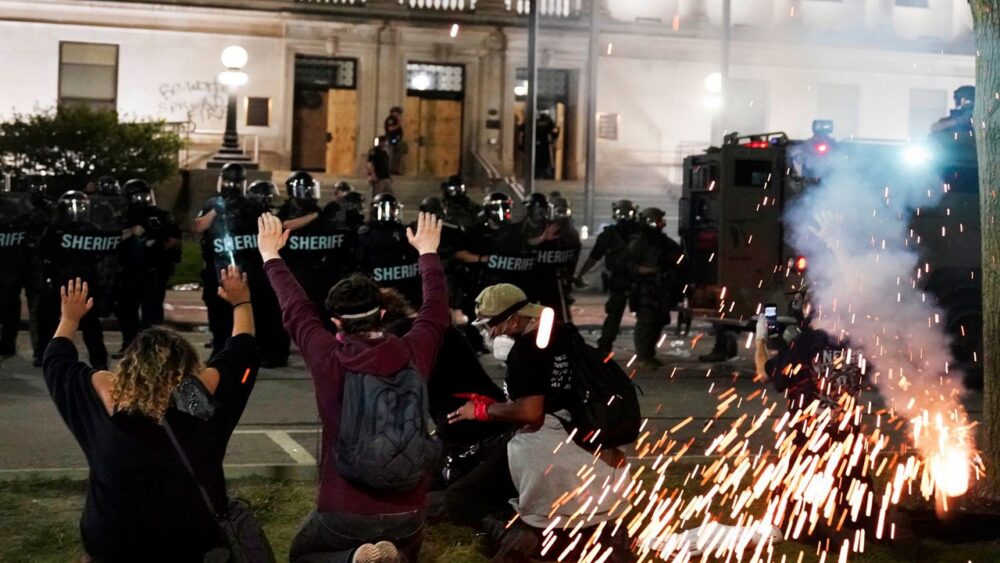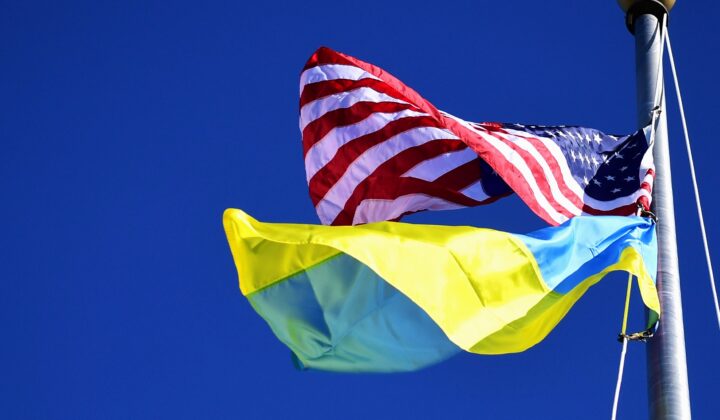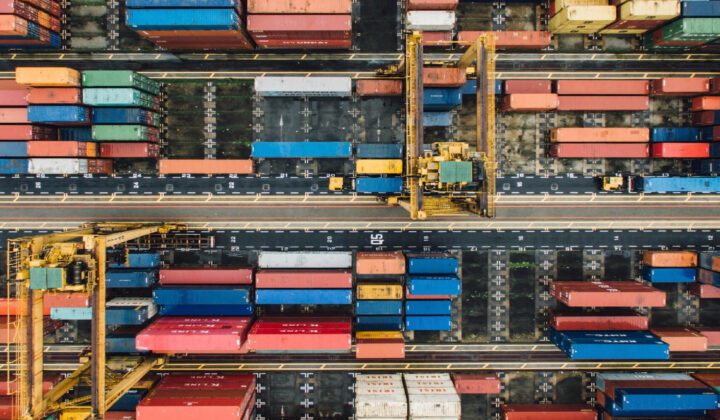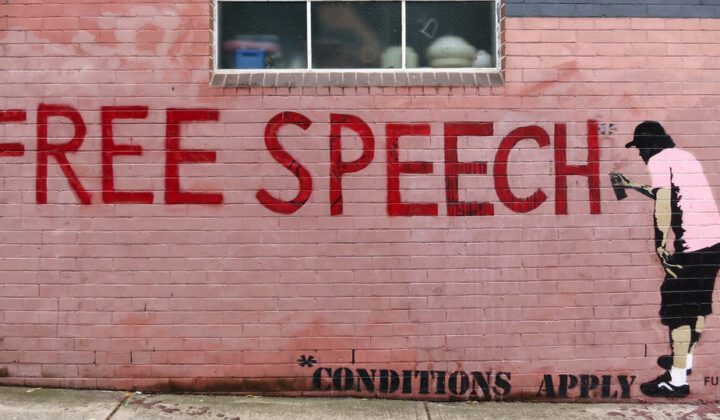Partisan Strife and Violence Sweep America
The police shooting of Jacob Blake on Sunday, Aug. 23 has sparked renewed attention toward police brutality and a new wave of sometimes-violent civil unrest.
Responding to a call about a domestic dispute in the city of Kenosha, Wisconsin, police shot Blake seven times in the back as he entered a car with three of his children inside, paralyzing him. The shooting precipitated protests that became violent on Monday night.
Then, on Tuesday night, Kyle Rittenhouse, a 17-year-old from Antioch, Illinois traveled to Kenosha as part of a makeshift paramilitary group assembled to patrol the protests. Illegally open carrying an AR-15 semi-automatic rifle, Rittenhouse shot protestors during confrontations, killing two and injuring one in the process (click here for more information).
These escalations have led to a vicious cycle. On Saturday, in Portland, a skirmish broke out that left a supporter of the far-right group Patriot Prayer dead. The scuffle transpired shortly after a caravan of Trump supporters armed with paint guns and bear spray confronted counter-protesters. The suspect in the killing, a self-identified anti-fascist, was previously charged with bringing a loaded gun to protests, charges that were later dropped. Meanwhile, Portland has surpassed 90 days of protests and unrest.
This unrest extends beyond Kenosha and Portland. Recent videos capture disturbances spanning from Kalamazoo, Michigan to Bloomington, Indiana to Dallas, Texas. Police have struggled to contain the intensifying violence.
1. What have different political leaders and media figures said about the violence?
In a time of great national tumult, far from looking to turn down the temperature, many public figures have fanned the flames, dismissing or even supporting the violent agitators among their co-partisans while blaming violent actors from the other side.
Never one to avoid controversy, on Sunday, President Trump liked a tweet defending Rittenhouse and tweeted out encouragement of the Trump caravan. On Monday, he doubled down, suggesting Rittenhouse acted in self-defense and likening police officers who use excessive force to golfers who “choke” on important shots.
Departing Trump aide Kellyanne Conway went so far as to imply that further unrest would improve Trump’s standing, telling Fox News “the more chaos and anarchy and vandalism and violence reigns, the better it is for the very clear choice on who’s best on public safety and law and order.”
Several notable media figures have also expressed support for Rittenhouse. Talk show host Tucker Carlson remarked, “how shocked are we that 17-year-olds with rifles decided they had to maintain order when no one else would?” Provocateur pundit Ann Coulter went further, saying she wanted Rittenhouse “as my president.” Meanwhile, even NPR has given a platform to those trying to rationalize looting with a supportive interview about a book appropriately titled, “In Defense of Looting.”
For his part, Democratic nominee Joe Biden firmly stated “I condemn this violence unequivocally. I condemn violence of every kind by anyone, whether on the left or the right.”
2. What are the consequences of this unrest for our democracy?
Civil discourse is the bedrock of a well-functioning democracy, enabling the sort of open discussion our Founders engaged in to craft the Constitution. However, when conversation turns violent, democracy atrophies, as arguments are decided by intimidation and force rather than facts and logic; the marketplace of ideas starts to break down, and citizens become too afraid to speak their minds. Manufacturing crises and resorting to scare tactics is “out of the authoritarian playbook,” according to Daniel Ziblatt, co-author of How Democracies Die. The recent disorder only underscores the urgent imperative to protect respectful dialogue and political empathy.
NBA Teams Step Up and Take a Stand
Following the police shooting of Jacob Blake on Sunday in Kenosha, Wisconsin, the Milwaukee Bucks decided to sit out their Game 5 playoff last Wednesday, potentially forfeiting their season in order to protest police violence against African-Americans. Immediately following their decision, the NBA announced it would postpone all three playoff games that day. The WNBA, which has been at the forefront of the BLM movement since the latter’s inception, canceled all its games on Wednesday and Thursday. The MLB also postponed three games in solidarity.
On Wednesday night, the players of the NBA teams still in playoff contention gathered to discuss how best to support the BLM movement. After receiving advice from President Obama, the players decided on Thursday to finish the playoffs, but petition their team owners to support BLM.
In response, the NBA Board of Governors met that day and, spearheaded by Michael Jordan, the only black majority owner in the NBA, decided to convert all stadiums that the league owns into safe voting centers in November. They also agreed to establish a social justice coalition and air advertisements during the remaining games encouraging civic engagement.
1. What is the NBA’s record in standing up for democratic issues?
It’s mixed. Under the tenure of commissioner Adam Silver, the NBA has led on domestic social justice issues, including the speedy expulsion of Clippers owner Donald Sterling from the league after a history of horrific racism came to light in 2015. The NBA’s recent advocacy is the culmination of a long history of support for racial justice in the US. However, the NBA has often capitulated on important human rights questions in other countries.
In particular, the NBA has repeatedly failed to stand up to the Chinese Communist Party (CCP). China is a large market for the league, with 640 million viewers as of 2018. In October, 2019, Houston Rockets General Manager (GM) Daryl Morey tweeted support for the Hong Kong protest movements in the face of CCP totalitarianism. In response, the Chinese league cut ties with the Rockets and the Chinese government released statements rebuking Morey. Far from coming to Morey’s defense, the league, including some prominent stars, defended China, prioritizing an important market over the human rights of Uighurs and Hong Kongers.
2. What does this activism show us about our democracy?
During times of political stress, activism from popular public institutions can strengthen our democracy.
On Wednesday, in response to the Bucks’ protest, Wisconsin Lieutenant Governor Mandela Barnes called the team to discuss ways in which they could work with elected officials. Governor Tony Evers has since called a special session of the state legislature to discuss police reform. Although Republicans, who control both houses of the legislature, boycotted the session, gaveling it into indefinite recess just 30 seconds after returning, the Bucks have committed to continue working with lawmakers moving forward.
Perhaps most importantly, activism on the part of NBA players has secured large voting centers making it easier for citizens to safely vote this November. Already, eight teams have agreed to convert their facilities, with two more expected to do so in the near future.
Given partisan gridlock and threats to our democracy, the role public institutions can play in our society becomes all the more critical.
___
Positive Signs Amidst Protests in Thailand
In the midst of inspiring protest movements across the globe, Thailand has become the latest to push back against its authoritarian establishment. Since July, protests led by Thai youth have escalated, culminating in an enormous political rally of 10,000 on August 16th at Bangkok’s Democracy Monument. Student-led protests occur almost daily across the country and show no signs of letting up.
The protests were aggravated by the contrast between the collapse of Thailand’s tourism industry and the king’s extreme wealth and frequent trips abroad, as well as harsh restrictions on ordinary behavior like haircuts.
Protesters have urged the creation of a new constitution, the dissolution of the current military junta-led parliament, and an end to the government’s strict sedition laws that have led to the disappearances of Thai dissidents.
To date, the protests have brought some progress. Whereas just four years earlier, criticism against the monarchy would have been unthinkable and jailable, it has become a central element of the protests today. Although protestors and lawyers are still being arrested for sedition, none have yet been charged, in contrast to previous years. This crucial cultural shift hints at important democratic reforms in the years to come.
1. Does Thailand have any history with democracy?
Not really. Thailand transitioned to a constitutional monarchy in 1932, rejecting absolutism and adding an elected parliament and a constitution. However, the constitution has allowed for significant royal involvement in government, legitimizing many military attempts to interfere with parliamentary activities, including elections. There have been a dozen successful military coups over the years catapulting Thailand from junta to junta.
There was a broad push for reform in 1973, leading to a brief period of democratization. However, in 1976 as part of another coup, Thai police and right-wing paramilitaries violently put down left wing and pro-democracy activists in the Thammasat Massacre, ending the democratic experiment and beginning another junta government.
The most recent military coup occurred in 2014, and the general leading that coup still serves as Thailand’s Prime Minister. Ever since then, free speech has been suppressed, with dissidents being forced to attend “attitude readjustment camps” and sometimes disappearing.
Memories of Thammasat hang over today’s protests, with the consequences of protesting all too clear to those involved.
2. What’s next for Thailand?
It is unclear what will happen next for Thailand and the protesters’ dreams of democratization, but there may be reasons to be hopeful.
One notable aspect of the protests is that they represent a generational divide. These protesters are primarily younger, and believe that the government should exist to serve the people, unlike the older generation, which prioritized obedience to Thailand’s traditional monarchic, militaristic structures. Support for the government and monarchy used to be split on a regional and socio-economic class basis, but now a far broader age-based cross-cutting coalition is rejecting the traditional pillars of the Thai state.
Moreover, support for the current monarch is at an all time low. The long-reigning King Bhumipol died in 2016, and was replaced by his son, King Vajiralongkorn. Given his unpopularity, it is unclear if he has the gravitas needed to maintain the status quo and stave off democratic reforms.





